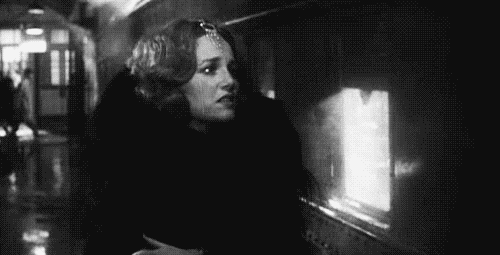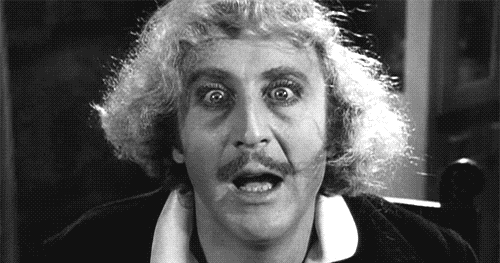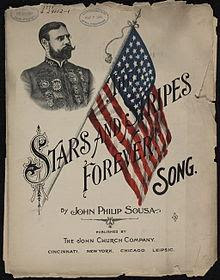I don’t
remember where I heard this – maybe in Moscow on the Hudson, one of
Robin Williams’ earlier films, where he had not yet calcified into the parody
of himself he is now. But it was a reference to being “in the lineup to wait
for the lineup”. Do we think this only applies to the fucked-up Soviet system
of inefficient callousness?
Substitute
“medical” for “Soviet”, and you’re almost there.
I’ve been
waiting to hear back from my doctor. I went in three weeks ago to address some
alarming symptoms, the kind of thing that medical articles and TV doctors say
you should follow up on immediately. I need a certain nasty-sounding test. It’s
an up-the-ass sort of test that I don’t look forward to, a Roto-Rooter boring
into my colon. I bailed on one of these tests a year or so ago, just couldn’t
make it. This time there’s a serious reason for taking it, and I’m hearing nothing.
Maybe three
weeks on the waiting list for the waiting list isn’t long, who knows. I have
phoned twice to check up on it, and both times was hand-pattingly gotten rid
of. In the nicest, we-know-who-you-are-you-hypochondriacal-old-bat way.
I didn’t think
I had quite reached old-battitude yet, but I guess it’s a matter of degree. I don’t
think of myself as a hypochondriac, but I once was told I was a
“psycho-chondriac” because I dared to complain about clinical depression.
Nowadays, they’d get down my neck if I didn’t complain. Don’t you know
that’s a serious condition? Don’t you care about your health?
You don’t dare
listen to medical specialists, especially not on TV where the more ludicrous
the claim the better, because it “makes good television”. Soon the theory will
be completely discarded, and of course anyone who goes to their doctor to have
it checked out (as the medical “expert” never fails to insist that you should do) is
looked at with that blank, incredulous,
“what-the-fuck-are-you-talking-about-anyway” look.
And doctors
also say “whatever you do, DON’T go on the internet about this.” I can see why,
I really can. Lots of internet sites about health verge on black magic. Wave a
dead cat over your head at midnight , and you’ll never have a heart attack
again. Eat certain things, ingest herbs, roots, whatever they have for sale at
an outrageous price, and your cancer will vanish and never come back.
But why can’t
we get some basic information in this information age? Are the doctors,
overloaded and harried and eager to install a revolving door in the office so
they can yell “NEXT” every five minutes or so, any more useful for our
enlightenment? Especially since they all have different philosophies and insist
that theirs is the One True Religion.
I’ve noticed
something else. My husband collapsed on the floor about a year and a half ago,
and no one knew why. It was alarming to see him surrounded by police and
ambulance attendants and paramedics. I had to stand back, way back, while they
worked on my grey-looking life partner. Then came the barrage of tests. I don’t
know how many tests, but he had to see many specialists, each of whom took a different
part of the body and studied it.
Reminds me of
that old story about the blind men and the elephant. It's a big piece of leather. No, it’s a thing like a
hunk of rope. No, it’s a big chunk of ivory. No, it’s a – look out! It’s
about to charge!
. . . PHHHHHHHHHHHHHHT!!
I do have a
point. None of these specialists ever talk to each other or even send reports
to one another. It is as if Bill had a separate heart, nervous system, brain,
bladder, prostate, etc., component parts that were assembled like Lego or an
old Meccano set. They weren’t parts of a person because these specialists are
not concerned with a “person”. They are concerned with a piece of tissue, a
hunk of organ. Never is the circulatory system connected to the heart, that’s
insane! Nor is brain function tied to the nervous system. How absurd. They’re
separate systems.
Frightening,
is what it is. There is no consultation between experts, just conclusions,
usually that everything is just fine and the patient is full of shit and
whining for nothing.
Sometimes I
want to bring back the days of the family doctor, like the wheezing old guy who
carried a black bag into our house when I had the measles or the whooping cough.
For a while after my first grandchild was born, there were three generations of
my family seeing one physician. I’d had my doctor for nearly 15 years and
recommended her to my daughter, who took her on, then started taking her infant
daughter in to see her. It was an interesting throwback to a different time
that is now completely obsolete.
Then she
retired, and that was over and done. A child nowadays would have to go to a
“pediatric specialist”, and if she was acting up a bit and stamping her foot
and not paying much attention to parental commands, she’d be diagnosed
autistic. ADD is now old-fashioned and has been pretty much phased out, like
personality disorders in adults. The autism “spectrum” is the thing now, you
see. And by the way: I have a drug for
that.
Oh, don’t get
me going on psychiatric stuff, the way fads and fashions seem to dictate
everything. Depressed women used to be given Valium, a highly addictive tranquillizer,
which was about as sensible as taking a crowbar to someone with a concussion.
Gay men were sick. They couldn’t help it, they were “immature” and their
mothers were too dominant and their fathers were too weak. If they tried really
hard, they might pass for hetero. But for the most part homosexuality was seen
as a permanent mental illness, a serious one that disrupted the chance for a
“normal” life.
For every
action, there is an equal and opposite reaction. Simple physics. So now gay
people – especially gay men in drag – prance around in pride parades, flaunting
their “outness”. And we all smile, some of us a bit tightly, not daring to say
we find the whole thing a bit silly, if not extreme. “Why aren’t there any heterosexual
pride parades?” one unfortunate local politician once muttered, only to
have so many bricks thrown at her that she never spoke again.
I’m not for
going back to the barbaric model of “diagnosing” sexual orientation. But I
don’t see psychiatric patients prancing around in parades celebrating the fact
that they’re “out”. They’re afraid,
that’s why. Their condition is still very much medicalized, marginalized and
stigmatized. There is no flexibility here, no individual definition of
“normal”. You’re either a fuckup or you’re not. And if you’re not readily
diagnosable, if you don’t fit any of the known (or should I say current/trendy)
psychiatric categories, there will be hell to pay. You may even be told you’re
untreatable and your condition is hopeless.
Do I sound a
bit cynical about medicine? I wouldn’t go back to the days when no one even
spoke the word cancer, or people in psychiatric distress were “put away”, often
for life. (By the way, are you wondering now why I even mention psychiatric
illness, when it obviously has nothing to do with “real” illness, “physical”
illness that takes place in the body? Psychiatric illness takes place three
feet above your head in a little white cloud with a nasty little man in it who
spits on you every so often.) I wouldn’t
go back, but I couldn’t anyway, could I? There is no going back.
So I wait. If
I do have cancer, which is extremely unlikely, then it is bubbling and
festering away inside me even as we speak. It may be half a year before they
can even tell, because I am waiting to see how long I will be waiting.
I’d like to
see a horse doctor, please. If a horse has colic, they shove a big rubber hose into
its rectum and blow a stream of warm water in it until the obstruction pops
out. Sounds like a good idea to me.




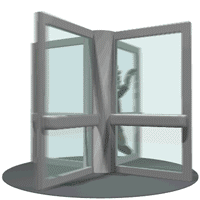













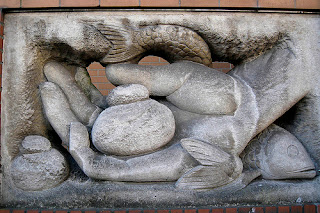




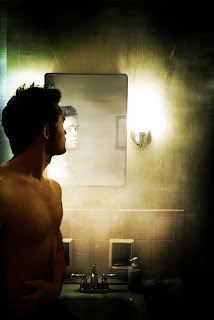



BPc)N-vpbw~~60_35.jpg)





















